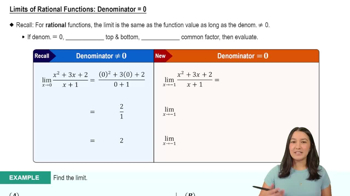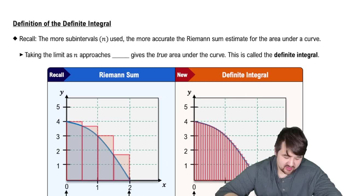In Exercises 77–80, find a function that satisfies the given conditions and sketch its graph. (The answers here are not unique. Any function that satisfies the conditions is acceptable. Feel free to use formulas defined in pieces if that will help.)
lim x → ±∞ k(x) = 1, lim x → 1⁻ k(x) = ∞, and lim x → 1⁺ k(x) = −∞





